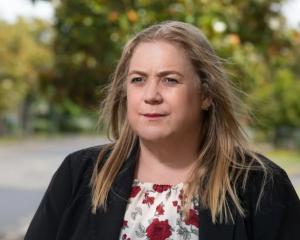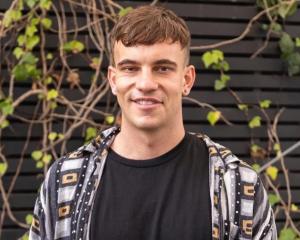
The Royal Australasian College of Physicians’ (RACP) Maori health committee has written an open letter to the University of Otago to express concern.
"We write as Maori physicians and paediatricians who see the inequity of health outcomes on tangata whenua from inside the hospital system," the letter begins.
"We know from morbidity and mortality data that although whanau Maori are more likely to experience and die from several types of cancer, diabetes, heart disease, stroke and respiratory conditions, they are less likely to receive a timely diagnosis or be referred for specialist treatment.
"There must be no cap on students accepted through equity pathways. We must grow the numbers of Maori and Pasifika in all parts of the health workforce, but we must continue to give particular emphasis to the medical workforce."
The letter from the college has followed discussions at the university about the way students are selected for medical school.
About 280 students are accepted into second-year medicine at Otago each year.
In 2020, more than half were admitted through equity pathways — Maori, Pasifika, rural, low socioeconomic and refugee. The system can result in students in the general pathway with higher grades missing out.
The idea of capping the priority pathways was raised in a discussion document but university representatives have said there is not yet any formal proposal for change.
The university is committed to the principles of its Mirror on Society policy, which is designed to ensure the student intake into health programmes is diverse.
In its letter, the college committee says it is deeply disturbed by the suggestion of caps and the Crown is obliged to actively promote equity for Maori.
"The approach we advocate for is twofold: action on the social determinants of health and increasing the Maori and Pasifika medical workforce.
"More Maori and Pasifika doctors means whanau who feel comfortable to see their respiratory physician, or their tamariki’s paediatrician, because they know that the person in charge of their care will understand them in a way no-one else can.
"Going to a health practitioner who looks and sounds like you, thinks like you and has the same core beliefs as you is an experience we want to be the norm for whanau.
"More Maori and Pasifika doctors also means more Maori and Pasifika in clinical leadership with significant opportunities to influence policy, strategy and guideline development."
University of Otago health sciences pro-vice-chancellor Paul Brunton said there was no proposal to cap the number of students entering medical school through the preferential entry programmes.
"The university’s medical admissions committee has been considering a document looking at medical admissions broadly," Prof Brunton said.
"However, currently there is no formal proposal for change.
"If there is a proposal in future, this would be subject to the usual university procedures, including opportunities for consultation with relevant stakeholders during that process."
The RACP committee cautioned against any future proposal to introduce caps.
"A cap dulls the brilliance all equity pathway graduates bring to our health system.
"While Maori may make up 17% of the population, using this as the target is inherently self-limiting.
"The Maori health committee calls on the Division of Health Sciences and the University of Otago to actively protect the equity pathway, making it permanent, with no cap on annual entry numbers."
Comments
The lack of clear thinking by this self-described group of physicians vividly illustrates the dangers of preferential treatment. All that quotas succeed in doing is to reduce the quality of the workforce.
This policy means that students with far better scores than a large group of those admitted to medicine do not get selected because of their race. Not sure if that is racism or apartheid.












